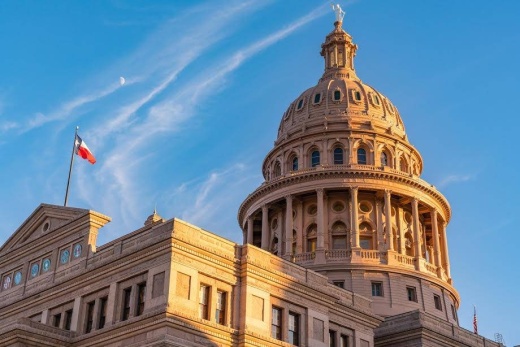Ramirez said the agenda varied somewhat from the IGR's initial anticipations. For instance, he said they expected police reforms and criminal justice to be more prominent topics. Ramirez attributed some of the shifts in agenda to loosened COVID-19 restrictions over the months of the session along with the effects of winter storm Uri.
“Before the session, we were kind of under the impression that this was going to be a very boring and a very business-oriented type session,” said Ramirez.
Discussions around ERCOT and its reformation were especially popular following the winter storm, and Carr said he believes the state is headed in the right direction there. Senate Bill 2 to improve ERCOT was passed and includes safeguards, such as requiring all members of the board be from Texas.
Carr said he believes improvements will have to be made now that there is more awareness by the general public around ERCOT and the state grid.
“There’s still a real strong passion to harden, if I may, harden our system,” Council member William Ferguson said. “The winter storm really put us on our heels, and so I just hope there’s still a strong passion to protect the people here.”
This session also saw more bills introduced than Carr said they expected, with the second all-time highest bill filing at 7,148. The last regular session in 2019 continues to hold the record number. Of those filed this year, the legislature passed 1,885 overall, including 249 related to cities.
In their presentation, Ramirez and Carr highlighted bills, passed and failed, that they expected to most affect the city of Sugar Land.
Ramirez said the IGR team worked with state representatives to reform SB 1117, regarding the composition of the Fort Bend Subsidence District, based on city concerns. Out of conversations with the bill’s author Senator Lois Kolkhorst, R-Brenham, and sponsor Gary Gates, R-Katy, Ramirez said they were able to add an additional at-large representative for the cities, as they are the main water users in the district.
Pandemic-related legislation that passed included HB 1239 that prohibited government agencies from closing places of worship during emergency situations, HB 1500 that prevents the closing of firearm or ammunition sellers in connection with disaster and SB 6 that provides liability protection for businesses against COVID-19-related lawsuits.
Carr discussed HB 1869, which redefines debt and permits cities to issue certificates of obligation based on a list of designated infrastructures. The bill was signed into law by Governor Greg Abbott June 15.
As it was originally filed, SB 23, related to law enforcement budget changes, would have affected Sugar Land. However, Carr said after discussion with the bill’s author Joan Huffman, R-Houston, it was revised to only apply to counties with a population of one million or more. Similar legislation, HB 1900 will also not affect the city as it will only apply to cities of 250,000 or more people. Both bills were signed into law by the governor June 1.
Carr said one of “the most talked about bills with regards to local governments” was SB 10, which would have prohibited cities and counties from advocacy in Austin. Although the bill did not pass this session, Carr said he expects the topic to return in special sessions.
Ramirez and Carr both mentioned the likelihood of at least one special session in the future.
Carr said issues of redistricting, federal funds, bail reform and border security are all expected to be potential agenda items for a special session, as well as election integrity, following the failure of SB 7.
“With those items, it would be a, I would think, very eventful special session to say the least,” Carr said.
The IGR will continue to advocate on the city’s behalf through continued engagement with the offices of state lawmakers.
“None of the members of the legislature in Austin think that they’re writing bad bills, but it’s our job to ensure that policymakers understand how the city works and understand how any of their legislation may have some unintended consequences,” Ramirez said.




